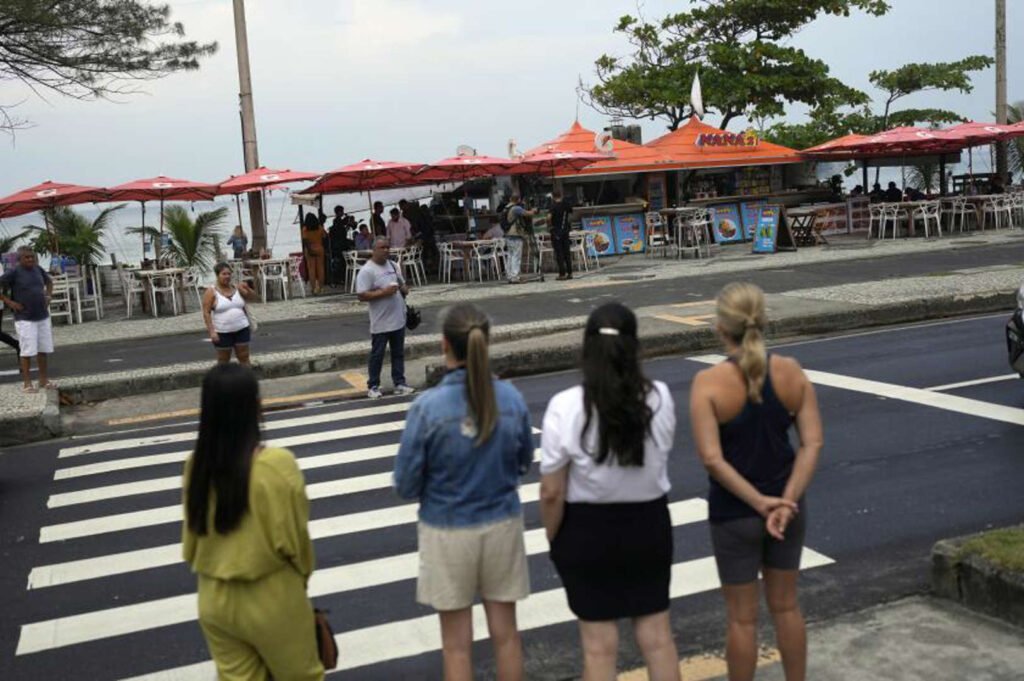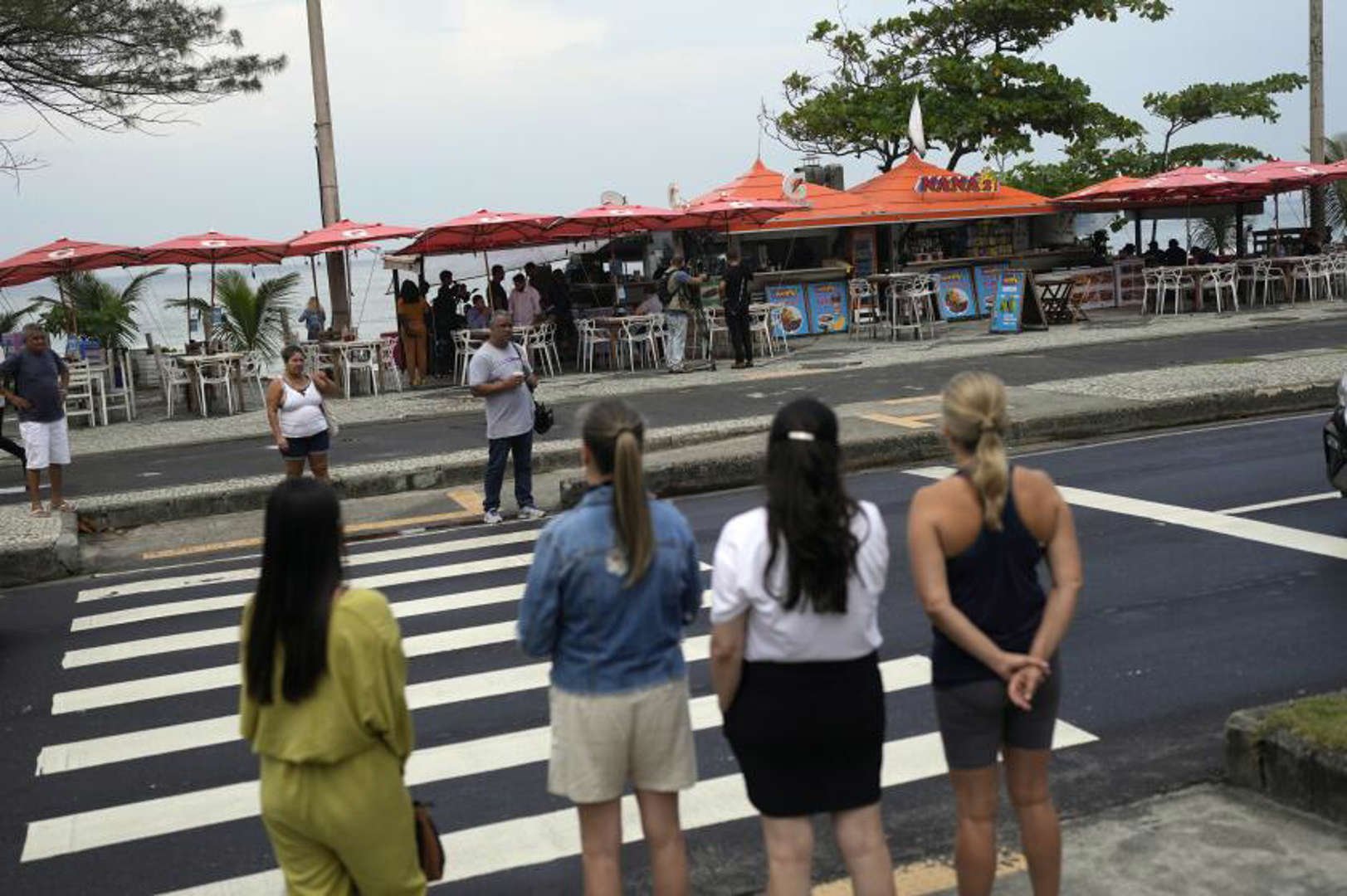Gunmen carried out a lethal attack, resulting in the deaths of three doctors and the injury of a fourth at a beachside restaurant in Rio de Janeiro, Brazil, early Thursday. The attack bore the hallmarks of organized crime.

This incident raised suspicions, particularly due to one victim’s familial connection to a federal lawmaker, hinting at potential political motives. Nevertheless, a report from Globo TV later on Thursday indicated that authorities were primarily investigating the possibility of a case of mistaken identity, with one of the intended targets being confused for the son of a local militia leader.
Surveillance camera footage obtained by the local newspaper O Globo revealed a group of assailants dressed in black emerging from a vehicle, rapidly approaching the victims’ table in the Barra da Tijuca beachside neighborhood, and opening fire before swiftly fleeing the scene. This shocking event transpired in less than half a minute.
The victims, all medical professionals visiting from Sao Paulo to attend an international orthopedics conference, included the brother of lawmaker Sâmia Bomfim. A fourth doctor sustained injuries and was transported to a hospital, as reported by the Rio state’s civil police, who are actively investigating the incident and its underlying motives.
Brazilian Justice Minister Flávio Dino announced on Thursday morning that he was assigning the Federal Police to assist in the investigation, given the possibility that the attack might be linked to the actions of federal lawmakers. Bomfim shares a marital bond with another legislator, Glauber Braga.. Minister Dino expressed his support for congresswoman Sâmia, congressman Glauber, and their families.
Bomfim and Braga are members of the same leftist political party as the late Rio city councilor Marielle Franco, who was tragically assassinated in 2018. The case remains unsolved, and Minister Dino stated in July that her killing appears to be connected to the influence of militias and organized crime groups that exert control over significant portions of the city.
These militias initially formed in the 1990s, composed largely of former law enforcement officers, firefighters, and military personnel, with the goal of combating lawlessness in their neighborhoods, addressing issues ranging from petty crime to complex drug trafficking. Over time, they began levying fees from residents not only for security services but also for amenities such as internet, electricity, and transportation. More recently, they diversified their interests to include real estate and even drug trafficking.
According to a study conducted last year by the non-profit organization Fogo Cruzado and a security-focused research group at Fluminense Federal University, these groups now wield control over approximately 10% of Rio’s metropolitan area.
Barra da Tijuca, the location of this tragic incident, is a sprawling beachside neighborhood known for its high-rise apartments and lies south of the more renowned Leblon and Ipanema beaches. Ariel Dimarco, an Argentine doctor attending the same conference with his wife, expressed their shock and surprise upon learning of the incident, having dined at the same restaurant just three hours before the attack.
“We thought it was a calm area, and now with what happened we’re going to need to have more precaution, more care,” Dimarco, 51, said in a brief interview near the crime scene.
The outdoor restaurant where the doctors were attacked is situated across the street from their hotel. According to reports from O Globo, they had settled their bill and were preparing to leave when the assailants arrived.
On social media, President Luiz Inácio Lula da Silva conveyed his “great sadness and indignation” upon learning of the execution-style killings.

